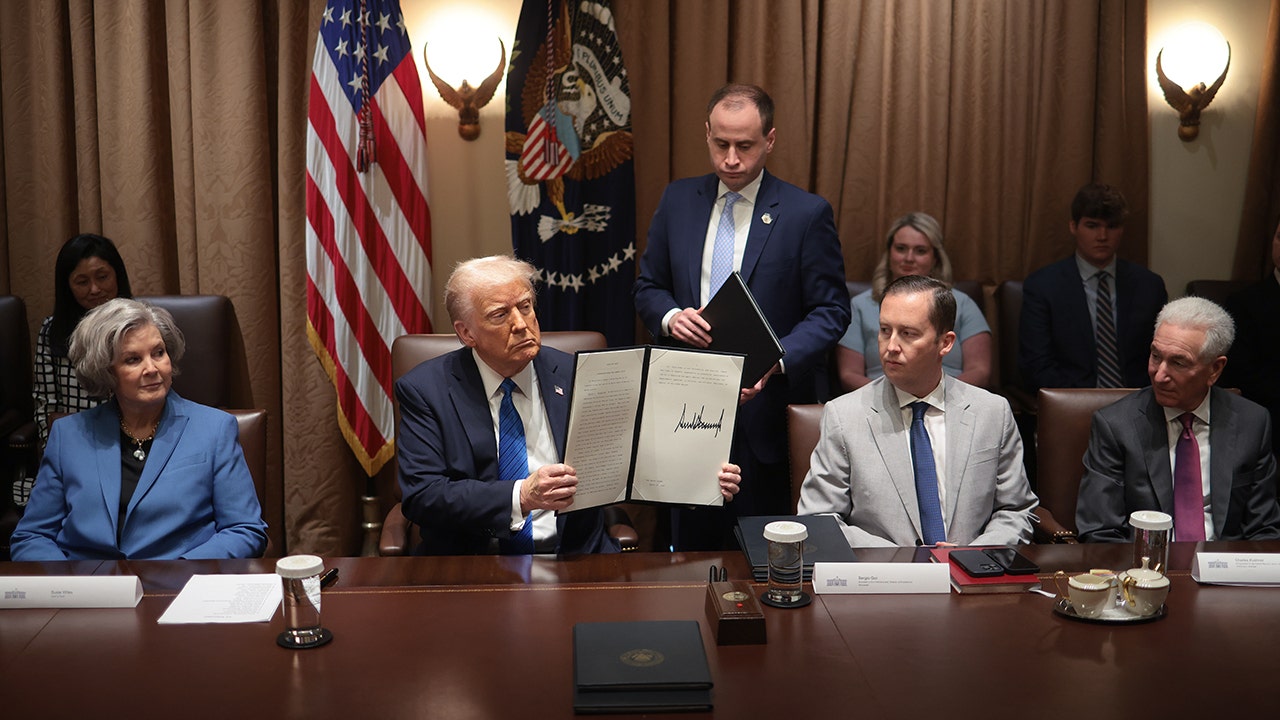Two lawsuits have been filed against a Trump elections executive order

President Donald Trump’s recent executive order aimed at overhauling the nation’s elections is facing legal challenges from both top Democrats and advocacy groups. The order, which seeks to implement significant changes to how Americans register to vote and cast their ballots, has spurred two lawsuits filed in the U.S. District Court for the District of Columbia.
The first lawsuit was filed by Campaign Legal Center and the State Democracy Defenders Fund, while the second was filed by the Democratic National Committee, the Democratic Governors Association, and Senate and House Democratic leaders. Both lawsuits are seeking to block Trump’s order and declare it illegal.
The Democrats’ lawsuit, filed by the Elias Law Group, argues that the executive order threatens to disenfranchise lawful voters by imposing radical changes on the electoral process. The lawsuit specifically calls out provisions related to mail-in ballot deadlines, voter registration forms, and the president’s alleged attempts to tilt the electoral playing field in his favor.
Legal experts have raised concerns that some of the demands outlined in the executive order, such as a proof-of-citizenship requirement for voter registration and changes to ballot deadlines, may violate the U.S. Constitution. Additionally, there are questions about the extent of the president’s authority over the independent U.S. Election Assistance Commission, which sets voting system guidelines and maintains the federal voter registration form.
Trump has defended the executive order as a necessary measure to secure elections, claiming it is the most far-reaching executive action taken to safeguard the electoral process in U.S. history. However, critics argue that the order’s data-sharing requirements, particularly involving the Department of Government Efficiency (DOGE), could infringe on privacy rights and increase the risk of voter harassment based on false suspicions.
While some Republican state election officials have praised Trump’s order for potentially curbing voter fraud and improving voter roll maintenance, concerns remain about the practical implications of the proposed changes. State election administrators would likely face additional costs and logistical challenges in complying with the order, potentially necessitating the purchase of new voting systems and voter education efforts.
One contentious aspect of the executive order is the proof-of-citizenship requirement, which could present challenges for eligible voters who lack the necessary documentation. Past experiences in states like Kansas, where a similar requirement was overturned after preventing thousands of eligible citizens from registering to vote, underscore the potential for confusion and disenfranchisement.
Overall, the legal battles surrounding Trump’s executive order highlight the ongoing debate over election integrity and the balance between election security and voter access. As the lawsuits proceed through the courts, the implications of the order on the electoral process and voter participation remain a point of contention.




